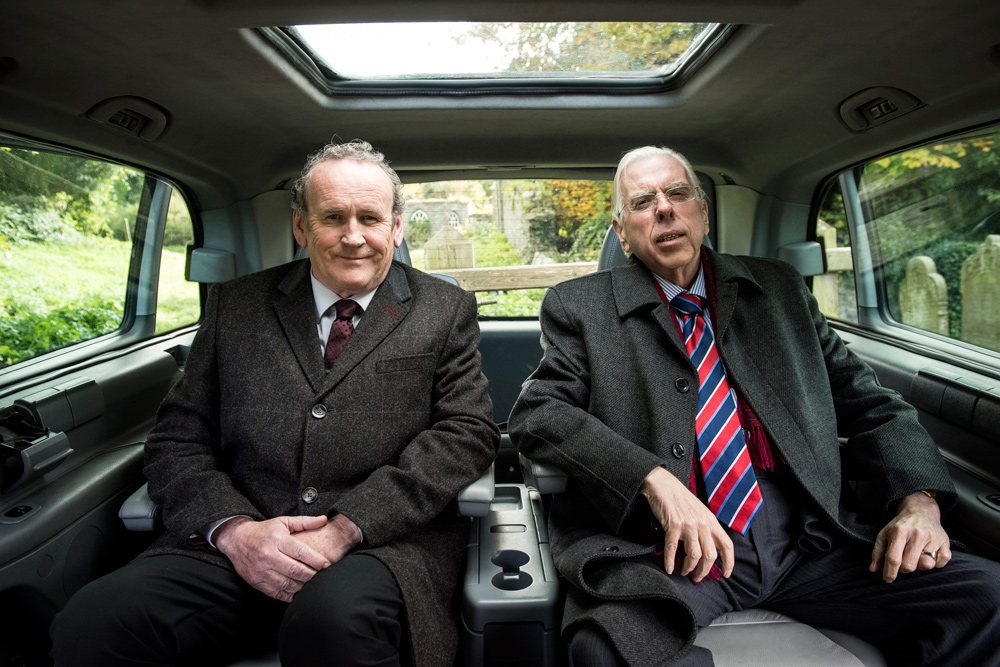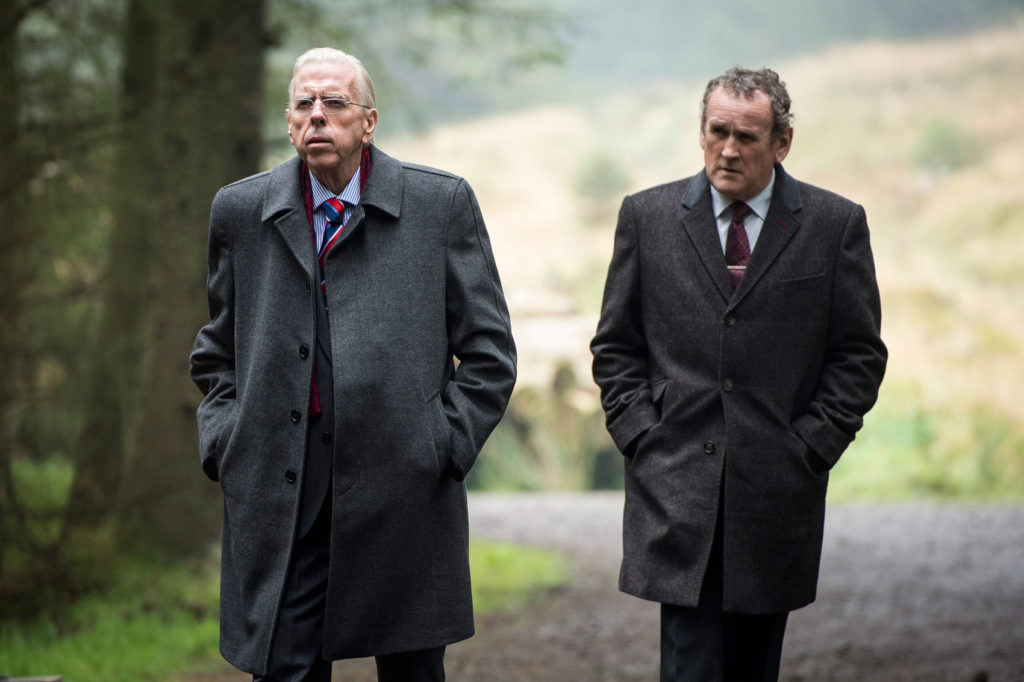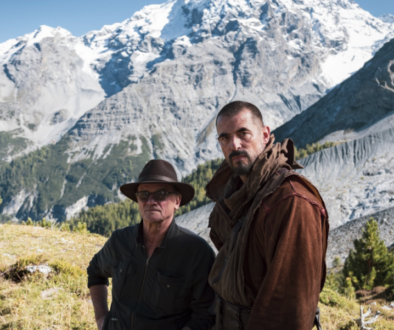
BY MATT GOLDBERG SEPTEMBER 16, 2016
We live in a polarized world. We see the things that divide us, and we become entrenched. To give ground is to admit defeat, and so we become locked in a war of attrition. Nick Hamm’s The Journey has a hopeful message for our time as it imagines a conversation between two extremists who eventually learned to work with each other. The fact that it’s an imagined conversation does detract slightly from the reality of the situation, but screenwriter Colin Bateman finds the honesty of how two men, weary from war, could finally
find peace. Led by tremendous performances from Timothy Spall and Colm Meaney, The Journey is a captivating final conflict between two lifelong enemies.

After decades of war between Catholics and Protestants in Northern Ireland, the leaders of the two factions—the Democratic Unionist Party’s Ian Paisley (Spall) and Sinn Féin’s Martin McGuinness (Meaney)—arrive in St. Andrews for peace talks. However, Paisley’s 50th wedding anniversary is that night, and the bad weather could rain out his flight to Belfast. He decides to get an early ride back to the airport, and sensing an opportunity to talk to the opposition without entourages messing up the works, McGuinness decides to accompany Paisley on the ride. Over the course of their journey, the two men eventually chip away at decades of hatred and resentment to find a starting point for peace.
Their conversation has urgency because, as the U.K. government’s Harry Patterson (John Hurt) notes to a subordinate, these two men no longer have the stomach for war. After 9/11, “terror has to be a Hollywood spectacular,” and this is the last chance for Paisley and McGuinness to stop the younger generation from escalating the war that’s gripped Northern Ireland for decades. The timing is right for these two men to let their guards down, and the necessity for peace has never been more pressing.

Rather than leaping straight to international diplomacy, Hamm wisely takes his time establishing the coldness between Paisley and McGuinness. The first act of the movie is largely just Paisley and McGuinness conversing in a car, and that conversation revolves around banal topics like Samuel L. Jackson and the weather. It’s odd to think of international security relying on just breaking the ice, but The Journey understands that sometimes the biggest hurdle isn’t in the diplomatic details but in just starting the conversation.
Hamm skillfully paces his narrative so that when a barrier is broken down between these two men, it feels like a major accomplishment. If Paisley and McGuinness got to the heart of the matter too quickly, it would undermine the years of enmity and bitterness that had built up between them. Both men regard the other as a murderer, and neither completely trusts the other. Even though they don’t admit a fear of heightened extremism coming from the next generation, you always get the sense that they’re torn between the urgency of the moment and the sins of the past. It makes for a fascinating dynamic even though it’s just two guys having a conversation.
Spall and Meaney are brilliant in their roles. Spall continues to be one of the most underrated actors working today. The man is an absolute chameleon, and after watching him disappear into the role of Holocaust denier David Irving earlier this week, it’s really just a joy to watch his dynamic acting. He adds brilliant little touches to his performance as Paisley like the way he laughs or smiles. As for Meaney, it’s great to see him dig into a role as meaty as this one where McGuinness knows he’s the one who’s going to have to push Paisley out of his stubbornness. It’s a playful turn that also finds time to be sorrowful and heartfelt.
While it’s difficult to sustain a single conversation for the length of a movie (there are some brief interludes like when we cut to U.K. government officials monitoring the conversation), Hamm mostly succeeds. He makes great use of scenery, using it to symbolize the transformation and history of his two protagonists (for example, one terrific scene takes place in a broken down church). Even if you’re not interested in the history of Northern Ireland, The Journey is a great movie about working towards a selfless goal. Both men know they’ll be vilified by their supporters if they choose peace, but they also know peace is the only way to survive in the long term. Paisley and McGuinness may never have had the conversation depicted in the film, but the core of this fictitious meeting is one worth watching.
The Journey does not currently have a U.S. release date, but IFC Films, who has the North American rights, has announced the film will have a theatrical release in mid-2017.



